Century of Science
-
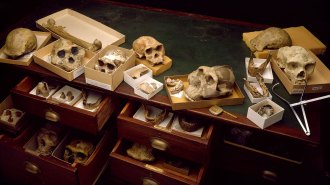 Humans
HumansFossils and ancient DNA paint a vibrant picture of human origins
Paleoanthropologists have sketched a rough timeline of how human evolution played out, centering the early action in Africa.
By Erin Wayman -
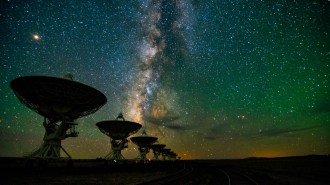 Astronomy
AstronomyHow radio astronomy put new eyes on the cosmos
A century ago, radio astronomy didn’t exist. But since the 1930s, it has uncovered cosmic secrets from planets next door and the faint glow of the universe’s beginnings.
-
 Astronomy
AstronomyThe definition of planet is still a sore point – especially among Pluto fans
In the 15 years since Pluto lost its planet status, scientists have continued to use the definition that works for them.
-
 Psychology
PsychologyHow the strange idea of ‘statistical significance’ was born
A mathematical ritual known as null hypothesis significance testing has led researchers astray since the 1950s.
By Bruce Bower -
 Psychology
PsychologyPsychology has struggled for a century to make sense of the mind
Research into what makes us tick has been messy and contentious, but has led to intriguing insights.
By Bruce Bower -
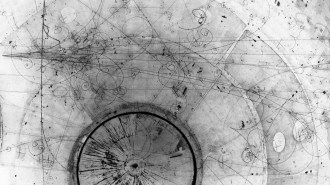 Particle Physics
Particle PhysicsHow particle detectors capture matter’s hidden, beautiful reality
Old and new detectors trace the whirling paths of subatomic particles.
-
 Planetary Science
Planetary ScienceA century of astronomy revealed Earth’s place in the universe
The past century of astronomy has been a series of revolutions, each one kicking Earth a bit farther to the margins.
-
 Science & Society
Science & SocietyWhat 20th century science fiction got right and wrong about the future of babies
A century of science has pushed the boundaries of human reproduction even beyond writers’ imaginations.
-
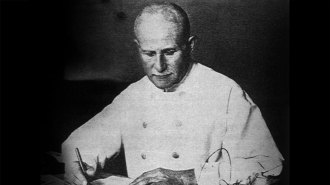 Health & Medicine
Health & MedicineHow Hans Berger’s quest for telepathy spurred modern brain science
In the 1920s, psychiatrist Hans Berger invented EEG and discovered brain waves — though not long-range signals.
-
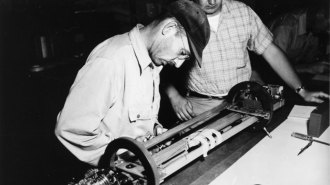 Earth
EarthA WWII submarine-hunting device helped prove the theory of plate tectonics
With a boost from World War II, the fluxgate magnetometer became a portable and invaluable tool.
-
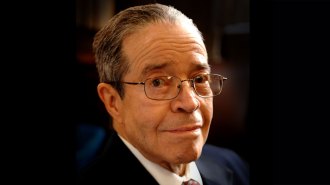 Physics
PhysicsMathematician J. Ernest Wilkins Jr. was a Manhattan Project standout despite racism
Black scientist J. Ernest Wilkins Jr. made nuclear physics calculations that helped build an atomic bomb.
-
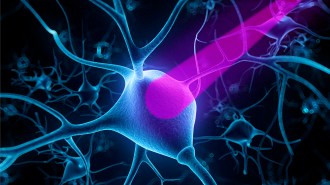 Health & Medicine
Health & MedicineControlling nerve cells with light opened new ways to study the brain
A method called optogenetics offers insights into memory, perception and addiction.